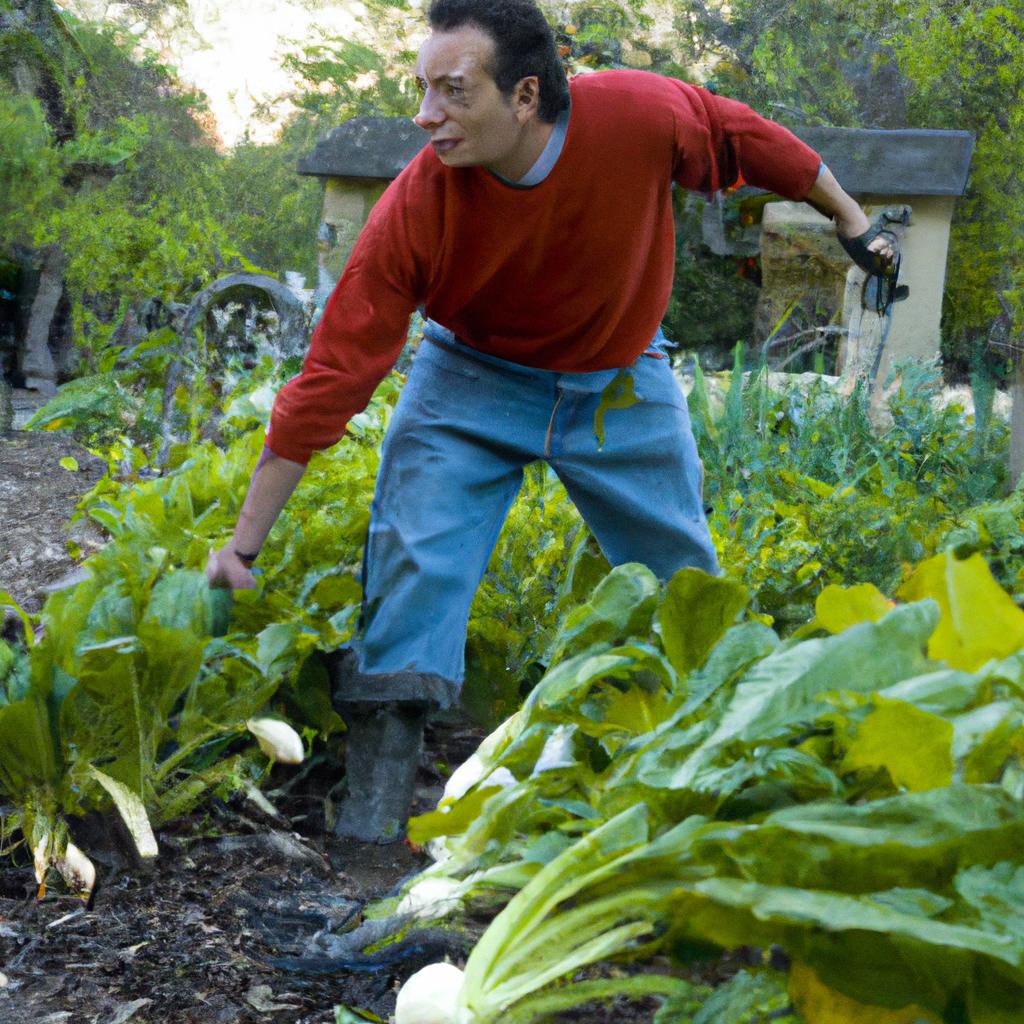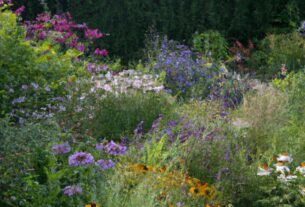If you’re considering starting a garden, why not give organic gardening a try? Organic gardening is a sustainable and eco-friendly approach to growing plants without the use of synthetic fertilizers and harmful pesticides. It not only benefits the environment but also promotes your health and well-being. In this comprehensive guide, we’ll walk you through the basics of organic gardening and provide valuable insights to help you get started on your own green journey.
What is Organic Gardening?
Organic gardening is all about working with nature to grow plants without relying on synthetic chemicals. It involves building healthy soil, employing natural fertilizers, and managing pests and diseases using organic methods. By practicing organic gardening, you also contribute to water and energy conservation, waste reduction, and the preservation of biodiversity.
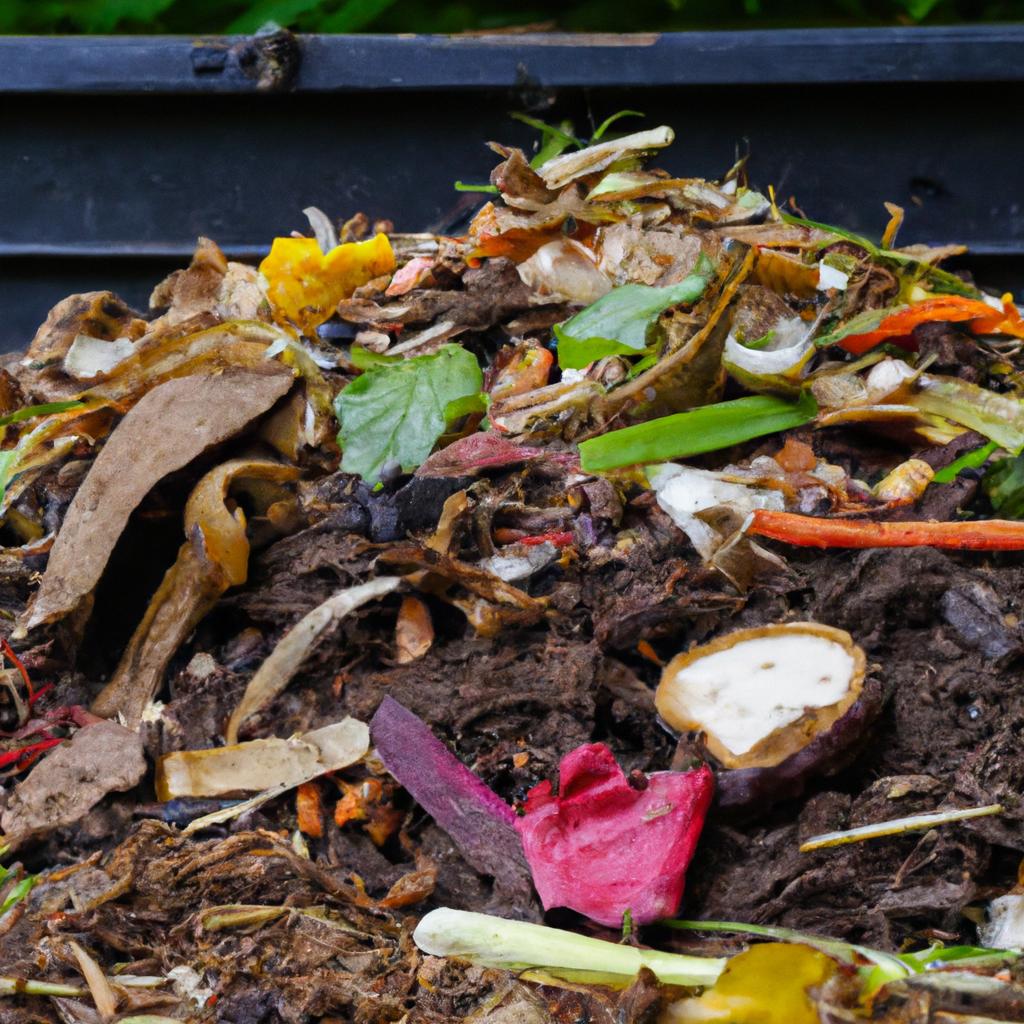 A compost pile made up of various organic materials.
A compost pile made up of various organic materials.
The Benefits of Organic Gardening
Organic gardening offers numerous advantages that make it an appealing choice for gardeners. Some of these benefits include:
-
Healthier produce: Organic gardening ensures the fruits and vegetables you grow are free from harmful chemicals and pesticides. As a result, you can enjoy fresh and healthy produce that is safe to eat.
-
Environmental sustainability: By avoiding synthetic chemicals, organic gardening helps reduce pollution and greenhouse gas emissions, conserves water, and promotes biodiversity.
-
Cost-effectiveness: Organic gardening can save you money in the long run. By eliminating the need for expensive synthetic fertilizers and pesticides, you can keep your gardening budget in check.
-
Physical activity and well-being: Gardening is an excellent way to stay active and get some exercise. It also serves as a stress-relieving activity that can improve your mental health and overall well-being.
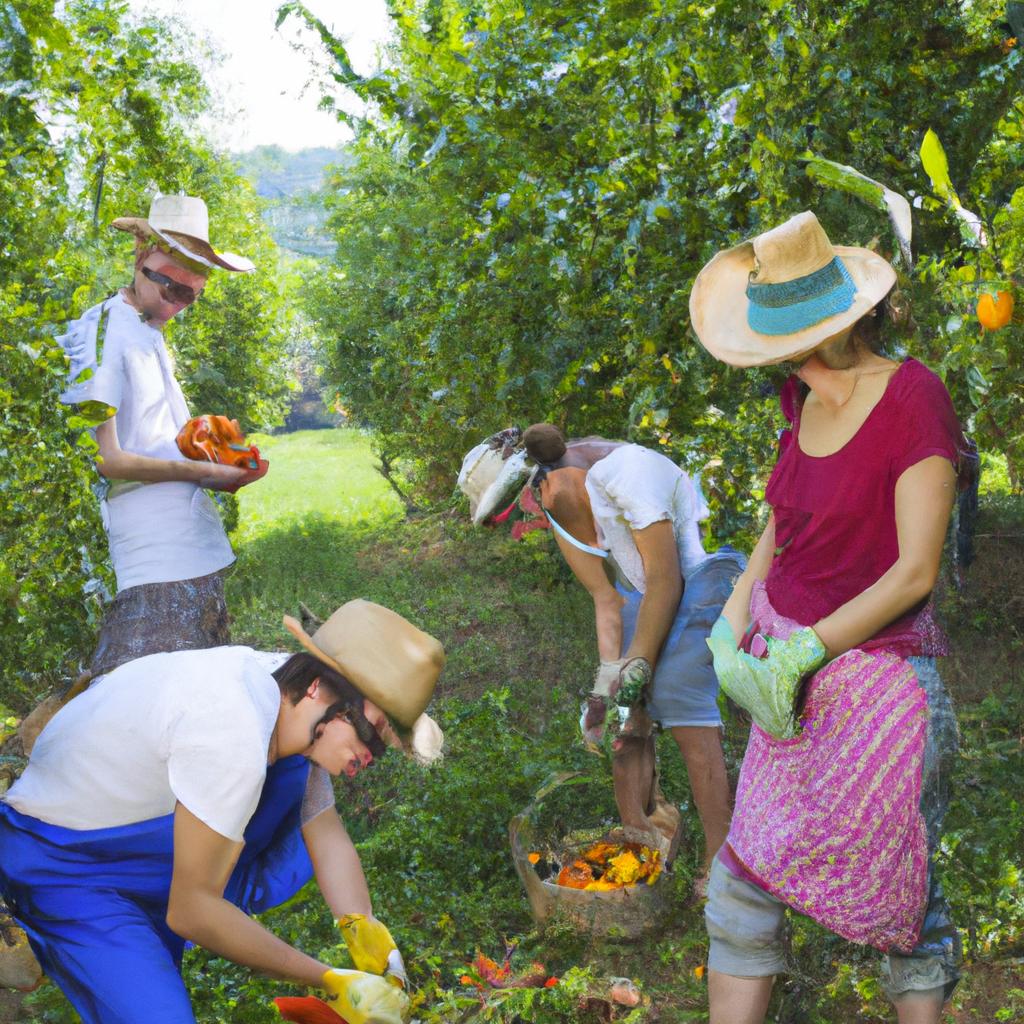
Starting an Organic Garden
Now that you understand the concept of organic gardening and its benefits, let’s dive into how you can start your own organic garden.
Choosing a Location
Selecting a suitable location is the first step in starting an organic garden. Look for an area that receives ample sunlight, has good drainage, and is easily accessible. Avoid locations prone to flooding, with poor soil quality, or too shady.
Preparing the Soil
Once you’ve found the ideal spot, it’s time to prepare the soil. Begin by removing any weeds or debris and enriching the soil with compost or manure. Organic matter is crucial for establishing healthy soil conditions to support your plants’ growth.
Next, use a garden fork or tiller to loosen the soil gently, allowing plant roots to spread and thrive. Remember not to overwork the soil, as this can harm its structure.
Selecting Plants
When choosing plants for your organic garden, opt for varieties best suited to your climate and soil conditions. Look for disease-resistant and pest-resistant plants to minimize the need for synthetic chemicals. Heirloom or open-pollinated seeds are excellent choices as they offer more genetic diversity and adaptability to environmental changes.
In the following sections, we’ll explore organic garden maintenance and effective composting techniques.
Organic Garden Maintenance
Once your organic garden is up and running, proper maintenance is crucial to its success. Organic garden maintenance involves various practices, including watering, pest control, and weed control.
Watering
Watering is essential for plant growth, but it’s important to avoid overwatering. Too much water can lead to root rot and other issues. To maintain an organic garden, water your plants deeply but infrequently. This encourages deep root growth and helps your plants develop robust and healthy root systems.
You can also conserve water by using a drip irrigation system or collecting rainwater in a rain barrel for your garden.
Pest Control
Pest control is a vital aspect of organic gardening. Instead of resorting to synthetic pesticides, organic gardeners employ natural methods to control pests. These include companion planting, crop rotation, and the introduction of natural predators like ladybugs or praying mantises.
Additionally, you can create your own organic pest control sprays using ingredients such as garlic, neem oil, or soap. These sprays effectively combat pests without harming beneficial insects or pollinators.
Weed Control
Weed control is another critical component of organic gardening. Weeds compete with your plants for nutrients and water, so keeping them in check is essential. Instead of using synthetic herbicides, opt for manual weed-pulling, hoeing, or mulching.
Mulching is an excellent method to suppress weeds and conserve moisture in your garden. You can use organic materials like straw, leaves, or grass clippings as mulch.
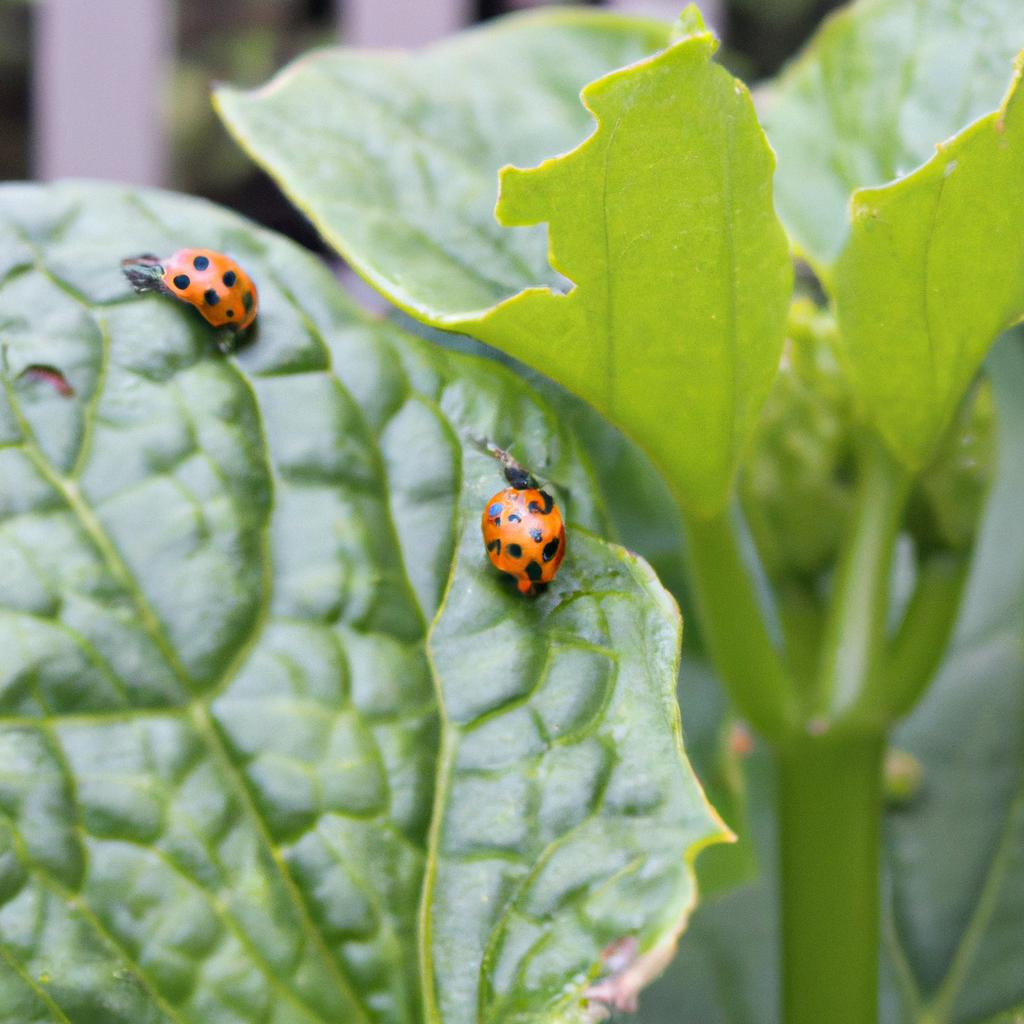 A ladybug sits on a leaf in a pesticide-free garden.
A ladybug sits on a leaf in a pesticide-free garden.
Composting
Composting is a fundamental practice in organic gardening, providing nutrient-rich soil for your plants. This process involves breaking down organic matter like food scraps, leaves, and grass clippings.
Definition and Benefits of Composting
Composting is a natural decomposition process facilitated by microorganisms. The resulting compost serves as a valuable soil amendment and can be added to your garden beds or used as potting soil. Composting reduces waste, improves soil structure and fertility, and promotes healthy plant growth.
How to Create and Maintain a Compost Pile
Creating a compost pile is simple. Start by choosing an easily accessible location with good drainage. You can use a compost bin or create a pile directly on the ground.
Add a mixture of “green” and “brown” materials to your compost pile. “Green” materials include fruit and vegetable scraps, grass clippings, and coffee grounds. “Brown” materials consist of leaves, straw, and newspaper.
To maintain your compost pile, regularly mix the materials for proper aeration and moisture. The compost should be moist but not overly wet. You can speed up the decomposition process by adding compost activators like manure or compost tea.
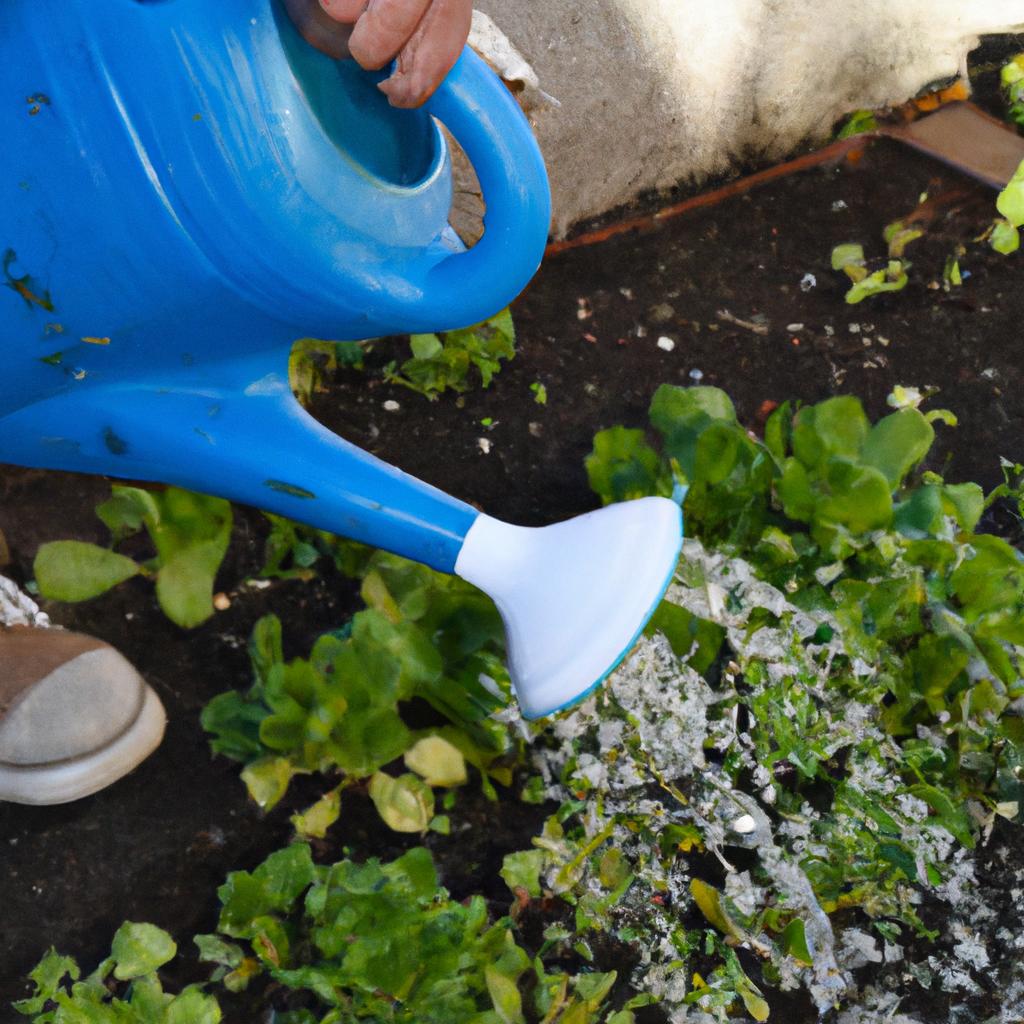 A person uses a watering can to carefully water their organic garden.
A person uses a watering can to carefully water their organic garden.
Harvesting and Storage
Harvesting is an exciting part of organic gardening, and proper techniques ensure the best quality produce. Here are some tips to keep in mind when harvesting organic produce:
-
Pick produce when ripe: Harvest fruits and vegetables when they are fully ripe to enjoy their best taste and nutritional value.
-
Handle with care: Be gentle when handling produce to avoid bruising or damaging it.
-
Use the right tools: Utilize clean and sharp garden shears or scissors to cut produce from the plants.
-
Harvest regularly: Regular harvesting promotes continuous growth and increases yields.
After harvesting your produce, proper storage is essential. Follow these tips for optimum storage conditions:
-
Thoroughly clean produce: Rinse fruits and vegetables with water before storing them.
-
Choose the right containers: Store produce in breathable containers such as paper bags, cloth bags, or baskets. Avoid using plastic bags as they can trap moisture and promote mold growth.
-
Maintain proper temperature: Store produce in a cool, dry place away from direct sunlight. Different types of produce require varying storage temperatures, so research the ideal conditions for each type.
Conclusion
In conclusion, organic gardening offers a sustainable and eco-friendly way to grow plants that benefit both the environment and your health. By avoiding harmful chemicals and synthetic fertilizers, you can enjoy fresh and healthy produce throughout the year. Starting an organic garden is an easy and rewarding experience that allows you to stay active, save money, and appreciate the wonders of nature.
To summarize, the benefits of organic gardening include healthier produce, environmental sustainability, cost-effectiveness, and the opportunity for physical activity. By choosing a suitable location, preparing the soil, and selecting the right plants, you can establish a thriving organic garden. Remember to maintain your garden by proper watering, pest control, and weed control, while also enriching the soil through effective composting.
We encourage you to embark on your organic gardening journey today and experience the joy of growing your own produce while contributing to a sustainable future. Happy gardening!
